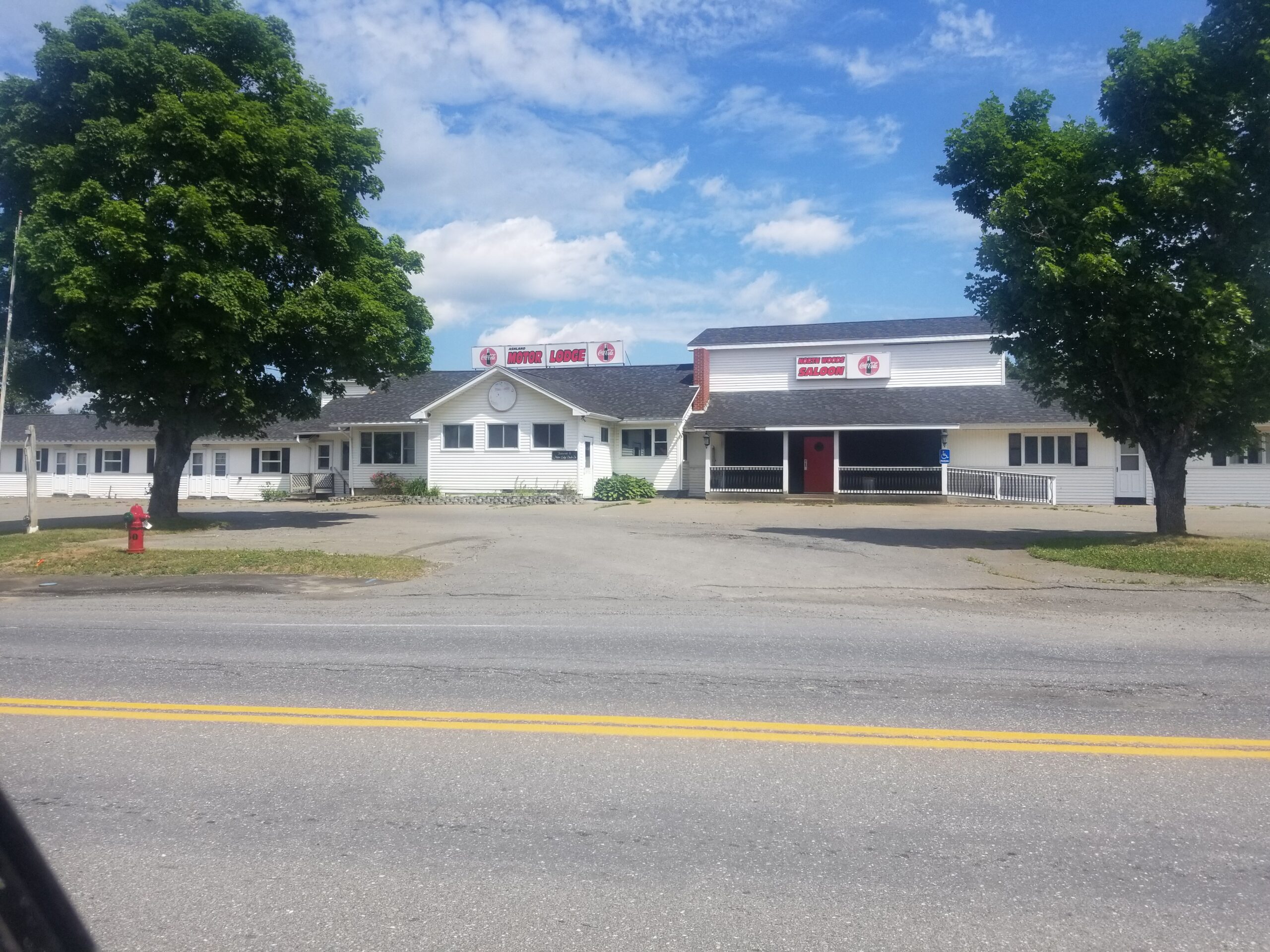
ASHLAND, Maine — Last winter was a good example of the strong demand for more lodging in the Ashland area to support four-season tourism, said Jared Carney, an Ashland police sergeant who’s been trying to buy , rehab and reopen the vacant Ashland Motor Lodge on Route 163.
“The town needs it. The snowmobile season was phenomenal,” he said, explaining that many motels and lodges on the Route 11 corridor were fully booked and even had to turn people away.
Carney was planning to buy the 16 room motel and restaurant and reopen it under the name Ashland Four Seasons. He had financing lined up through the Northern Maine Development Commission and qualified for a $210,000 Community Development Block Grant to pay for renovations and start up costs.
But the current owner, who operated the motel for two years before closing it in 2011, backed out of a purchase agreement this spring. This and other deals that fell through left Carney and other town leaders with the suspicion that the owner, an out-of-state trucker named Roger Hall, doesn’t want to sell or even see the business reopened at all.
“It’s my gut feeling that he had no intention of selling the place. I think he’s going to let that sit there till it rots,” said Town Manager Cyr Martin. “It’s been vacant for about 6 years and if it stays vacant much longer, it’s not going to be worth anything. Many people in town believe he wants to show the town that he can let it rot and pay the money on it.”
The Ashland Motor Lodge was originally built from a former home in the 1980s by the late lumber mill owner Jean Paul Levesque. Over the years, it expanded, including with a 300-person dining hall, and for a long stretch was operated by Dave and Mary Ellen Chasse, who sold it to Hall in 2008 for approximately $275,000, Martin said.
Hall did some interior remodelling and ran the business until 2011, when a “scandal” alienated local customers and dried up business, Martin said, without specifying details of the incident.
Since then, Hall has left the town and state. While he was paid roughly $7,500 per year in property taxes, Hall has left the property unheated and declined multiple offers to purchase the property, Martin said.
One section of the motel has damaged floors due to water infiltration and the water also has ruined the heating system, Martin said. The $210,00 block grant would have helped pay for those fixes as well as other renovations and startup costs.
The property is assessed at about $285,000, with annual taxes approaching $8,000, Martin said. For several years, Hall maintained an asking price of $695,000 and more recently of $400,000.
The purchase agreement that Carney proposed with the help of lawyers would have met that asking price, Martin said. Under the proposal, Hall would have received $106,000 up front, via a loan from NMDC, and then $294,000 over 15 years. In the end, Hall refused to sign the purchase agreement and didn’t return calls from the town, Martin said.
Hall, who is based out of Massachusetts, told The Star-Herald Tuesday that he is still willing to sell the property if the right deal comes through.
He said he rejected the proposal from Carney because he thought the deal left him as the second lien-holder, after NMDC. If the business ended up failing and going under, Hall said he would have had to pay the $106,000 back to a bank in order to get back ownership to the property.
“That doesn’t sound like a good deal to me,” Hall said, adding that he does want to sell the property. “I want to hold the paper, somebody needs to give me $100,000 up front, and I’ll hold the note” for the rest of the cost, he said. “I’m more than willing to cooperate with anybody.”
Hall said his asking price is $695,000 and that he invested $700,000 worth of renovations into the building after he bought it in 2008 for $275,000. He said he closed the lodge because of his trucking business based in southern New England and could not make the lodge work without living in Ashland.
Martin said that Hall likely did not invest more than $250,000 in renovations and maintained that the proposed deal would have still left him in an overall good position even if the business did not succeed.
“I agree that he would have been on the hook for the $100,000 but he would have gotten that down plus he would have had the whole building remodeled with the CDBG grant, making his building value go up,” Martin said. “He could easily repay the $100,000 and still be way ahead of the game with a remodeled building.”
“The building as it is now is not worth $400,000 in my mind let alone $690,000.”
Martin said the town wants to see the lodge reopened before the property is beyond repair. The block grant funding that was secured would have to be reapplied for in future grant application rounds.
“It’s an excellent location in town. It’s right on the snowmobile trail and right on the main road.”
The lodge would have come with at least six new full-time jobs and about a dozen part-time jobs, while helping support other businesses year round and grow western Aroostook County’s four season tourism, Martin said.
“It would have been a big economic booster for the town of Ashland,” Martin said. “We’re back to square one.”




